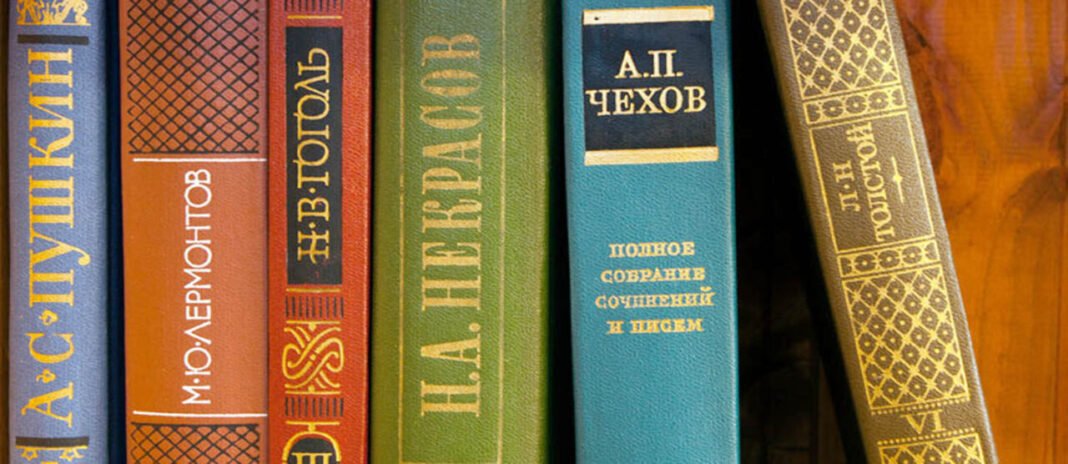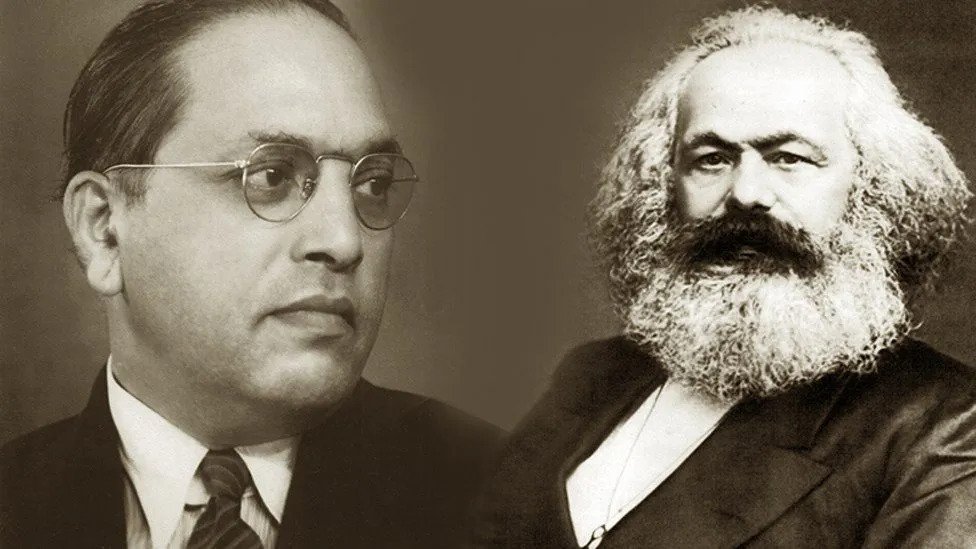By: Dr. Aniruddha Babar
My journey into the realms of literature and cinema began during my formative years. I was irresistibly drawn to the profound literary creations of Swami Vivekananda, Sant Kabir, and Jiddu Krishnamurti. Their words ignited within me a fervent passion for deep introspection, the pursuit of truth, and the realms of philosophy. Additionally, the literary treasures penned by eminent figures like Jawaharlal Nehru, M.K. Gandhi, and the illustrious Dr. B.R. Ambedkar served as a compass, guiding me toward a more profound comprehension of societal dynamics and political intricacies.
Furthermore, my intellectual odyssey led me to the captivating literary works of Russian luminaries such as Maxim Gorky, Fyodor Dostoevsky, and Leo Tolstoy. Their profound explorations of the human psyche resonated with me on a deep level, leaving an indelible mark on my literary sensibilities.
As I immersed myself in the world of literature, I found it impossible to resist the magnetic pull of British literary giants like Daniel Defoe and H.G. Wells. Their narratives had the enchanting ability to transport me to entirely different dimensions. And then, there was Jules Verne, the captivating French wordsmith, who assumed the cherished role of my bedtime storyteller, setting my imagination ablaze with tales brimming with adventure and uncharted exploration.
My passion for literature seamlessly intertwined with my fascination for cinema and music. While I never aspired to be a film critic, the cinematic brilliance of directors like Raj Kapoor, Satyajit Ray, Akira Kurosawa, Andrei Tarkovsky, Guru Dutt, Girish Karnad, Shyam Benegal, and Majid Majidi drew me into the world of cinema. These visionary filmmakers, each with their unique storytelling prowess, fuelled my appreciation for the art of visual storytelling.
It was during one such evening, in the heart of Dimapur, surrounded by friends who shared my ardor for art, that the influence of Russian literature on Hindi films emerged as a captivating topic of discussion. Our conversation unveiled the hidden threads connecting the literary giants of Russia to the vibrant narratives of Hindi cinema, reminding us once again of the enduring power of storytelling across cultures and generations.
On a leisurely evening in one of the cozy restaurants nestled in the heart of Dimapur, where time seemed to saunter at its own unhurried pace, a conversation about films began to meander through the gentle swirls of steam rising from our hot bowls of soup. It was an evening like many others, spent with friends who shared an insatiable appetite for art and culture. Our musings wandered through the tapestry of world cinema, and like a forgotten fragrance carried on a passing breeze, the subject of Russian literature in Hindi films wafted into our collective consciousness.
Russian literature, a vast and intricate realm, has left an indelible mark on the world of storytelling. Its profound narratives, rich characters, and explorations of the human condition have transcended geographical boundaries. Yet, what intrigued me that evening was not just the impact of Russian literature on literature itself, but it’s subtle, almost spectral presence in the world of Hindi cinema.
In the hushed corners of the Hindi Film Industry’s cinematic tapestry, echoes of Russian literary giants like Fyodor Dostoevsky and Leo Tolstoy reverberate in unexpected ways. The influence may not always be overt, but it weaves an intricate subtext, often unnoticed, into the narratives of Hindi films. It is as if the spirit of Russian literature has clandestinely infiltrated the scripts, adding layers of complexity to the storytelling.
Consider the themes of existentialism that permeate Russian literature, particularly in the works of Dostoevsky. His exploration of the human psyche, the battle between good and evil, and the moral dilemmas faced by his characters find curious parallels in Hindi cinema. Films like “Deewar” and “Sholay” delve into the moral ambiguity of their protagonists, grappling with questions of right and wrong. The internal conflicts mirror the torment of Dostoevsky’s Raskolnikov in “Crime and Punishment.”
Tolstoy’s epic “War and Peace” may seem light years away from the vibrant and often melodramatic world of Hindi films. Still, the core theme of human endurance amidst tumultuous times resonates deeply with narratives like “Mera Naam Joker” and “Mother India.” These films, while rooted in Indian soil, draw upon the universal human experiences depicted by Tolstoy.
Moreover, Russian literature’s preoccupation with societal critique, class struggles, and the human condition’s vicissitudes finds an echo in Hindi cinema’s more socially conscious offerings. Movies like “Do Bigha Zamin” and “Garm Hava” grapple with issues of poverty, displacement, and societal inequities, akin to the social critiques prevalent in Russian literature.
The emotional depth and intricacy of Russian literature’s characters have also left their fingerprints on Hindi films. The brooding heroes and enigmatic heroines, often portrayed with layers of complexity and moral ambiguity, owe a debt to the intricate character studies of Russian literature. The character of Devdas, immortalized in multiple Hindi adaptations, bears the unmistakable imprint of Russian literary heroes.
But perhaps, beyond the thematic and character parallels, it is the emotional resonance that Russian literature imparts to Hindi cinema that is most intriguing. The deep wells of emotion, the unrelenting examination of the human soul, and the triumph of the human spirit against all odds – all of these are themes that find a warm embrace in the hearts of Hindi film audiences.
In those fleeting moments of revelation during our restaurant conversation, it became apparent that the influence of Russian literature on Hindi films was not just a matter of borrowed plots or overt adaptations. It was an infusion of the spirit of Russian storytelling, a subtle exchange of literary souls that transcended the boundaries of language and culture.
As we sipped the last remnants of our soup and the evening sunlight bathed our table in a golden hue, I couldn’t help but marvel at the beauty of this cross-cultural conversation between two distinct literary worlds. It was a reminder that art, in all its forms, possesses the remarkable power to bridge chasms, to create connections where none seemed possible. Russian literature had journeyed far from its homeland, finding a new home in the hearts of Hindi film enthusiasts, leaving an indelible mark on the soul of Indian cinema. And in that quiet restaurant in Dimapur, we celebrated this unspoken yet profound connection – a testament to the enduring power of storytelling.
Life is unpredictable, and I find myself least bothered about what tomorrow might bring. In the vast landscape of possibilities, who’s to say that one day I won’t be the one making a film that resonates with audiences far and wide? It’s a whimsical thought, perhaps, but as my dear friend Colonel Joy Chowdhury (Retd) is fond of saying, “It’s time for the rolling stone to gather some moss – be all that you can possibly be.”
In the course of meandering conversation that lazy evening in Dimapur, the idea of creating art, much like the fusion of Russian literature and Hindi films, became a tantalizing notion. The unpredictability of life, with all its twists and turns, can lead us to uncharted territories and ultra-adventures, even those as diverse as filmmaking.
Just as Russian literature found a subtle, unexpected resonance in the world of Hindi cinema, who’s to say where our own creative journeys might lead? The beauty of art lies in its boundless possibilities, in the quiet intersections where two worlds meet and share their stories. And, as Colonel Joy’s wise words remind us, it’s never too late to gather some moss, to embrace the full spectrum of our potential.
In the realm of storytelling, whether through literature, cinema, or the simple act of sharing experiences over bowls of soup, we find the threads that connect us all. It’s these threads that make life’s unpredictability a tapestry of rich experiences and surprising connections – a tapestry where the influence of Russian literature on Hindi films becomes not just a curiosity but a testament to the enduring power of artistic expression. So, who knows what tomorrow might bring? A film, a story, or a super-epic adventure yet to be written – it’s all part of the unfolding narrative of our lives. (The author is an academician in the Dept. of Political Science, Tetso College, Nagaland)







